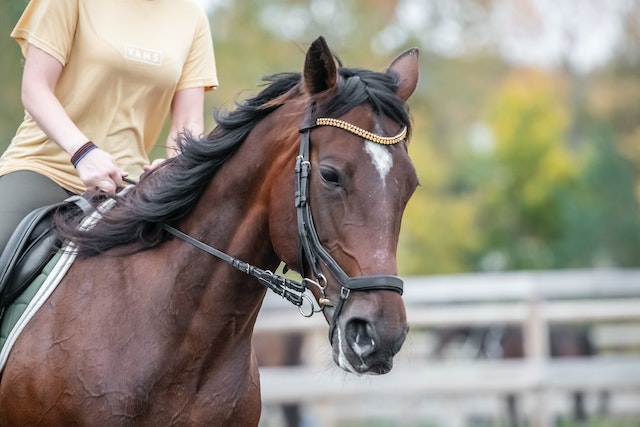5 Tips To Teach Your Horse New Tricks – The Basics Of Equine Training

Introduction: Why You Should Train Your Horse
As a horse owner, you may be wondering why you should train your horse. After all, they are already well-behaved, right? Wrong. Even the best-behaved horses can benefit from training. Here are four reasons why you should train your horse:
1. Safety: One of the most important reasons to train your horse is for safety. A trained horse is a safe horse. By teaching your horse basic commands, you can make sure that they stay safe in any situation.
2. obedience: Another reason to train your horse is obedience. A trained horse is a obedient horse. By teaching your horse basic commands, you can make sure that they listen to you and do what you ask them to do.
3. tricks: Tricks are another great reason to train your horse. Not only are tricks fun for both you and your horse, but they can also be used as a form of exercise for your horse.
4. bonding: Last but not least, training your horse is a great way to bond with them. By spending time together and working on new things, you will create a strong bond with your horse that will last a lifetime.
The Basics of Equine Training
One of the most rewarding experiences with owning a horse is teaching it new tricks. Whether it’s something as simple as teaching your horse to bow or something more complicated like learning how to dance, trick training can help you bond with your horse while helping to keep their mind active and healthy. If you’re new to trick training, here are some basics to get you started.
First, it’s important to understand that horses learn best through positive reinforcement. This means that whenever your horse does something you want it to do, you should immediately follow up with a treat, praise, or both. It’s also important to keep training sessions short and sweet, around 15 minutes or so, so that your horse doesn’t get bored or frustrated.
When you’re first starting out, it can be helpful to break down tricks into small steps that your horse can easily understand. For example, if you’re teaching your horse to bow, you might start by asking them to lower their head and then rewarding them when they do. Once they’ve mastered that step, you can add in the rest of the trick until they’ve got it down pat.
It’s also important to be patient when training your horse – remember, they’re trying their best! If your horse isn’t getting a trick right away, take a step back and try breaking it down into smaller steps again
What you know about the stirrups
The stirrup is a piece of equipment used by riders to help them stay in the saddle. It is a loop of leather, metal, or other material that goes around the rider’s foot and is attached to the saddle. The stirrup helps the rider keep their balance and gives them a better grip on the horse. Stirrups are also used to help riders mount and dismount from their horse. Find the stirrups for sale shops and get your stirrups.
5 Tips To Teach Your Horse New Tricks
One of the great things about horses is that they are intelligent creatures that can learn a variety of tricks. If you’re interested in teaching your horse some new tricks, here are a few tips to get you started:
1. Start with the basics. Before you start teaching your horse complex tricks, make sure they have a good foundation and understanding of the basic commands. This will make it easier for them to learn more advanced tricks down the road.
2. Be patient. Horses require patience and repetition when learning new tasks. It’s important to be patient with your horse and not get frustrated if they don’t seem to be getting it right away. Just keep practicing and eventually they’ll get it!
3. Use positive reinforcement. Like all animals, horses respond well to positive reinforcement such as treats or praise when they do something correctly. This will help teach them that they are behaving in the way you want them to.
4. Keep sessions short and sweet. Horses have a limited attention span, so it’s important to keep training sessions short and sweet. This way, they’re more likely to retain what they’ve learned and be less likely to get bored or frustrated.
By following these tips, you’ll be on your way to teaching your horse some fun new tricks in no time!
You Might Also Like
If you want to find your skiing paradise, let yourself feel the warmth of sun and sip of great food atmosphere in Chalet Sonnenhof in Perisher Resort.
You are welcome in Chalet Sonnenhof which lies at the very core of Perisher Resort,by heart ok- and passionate about...








